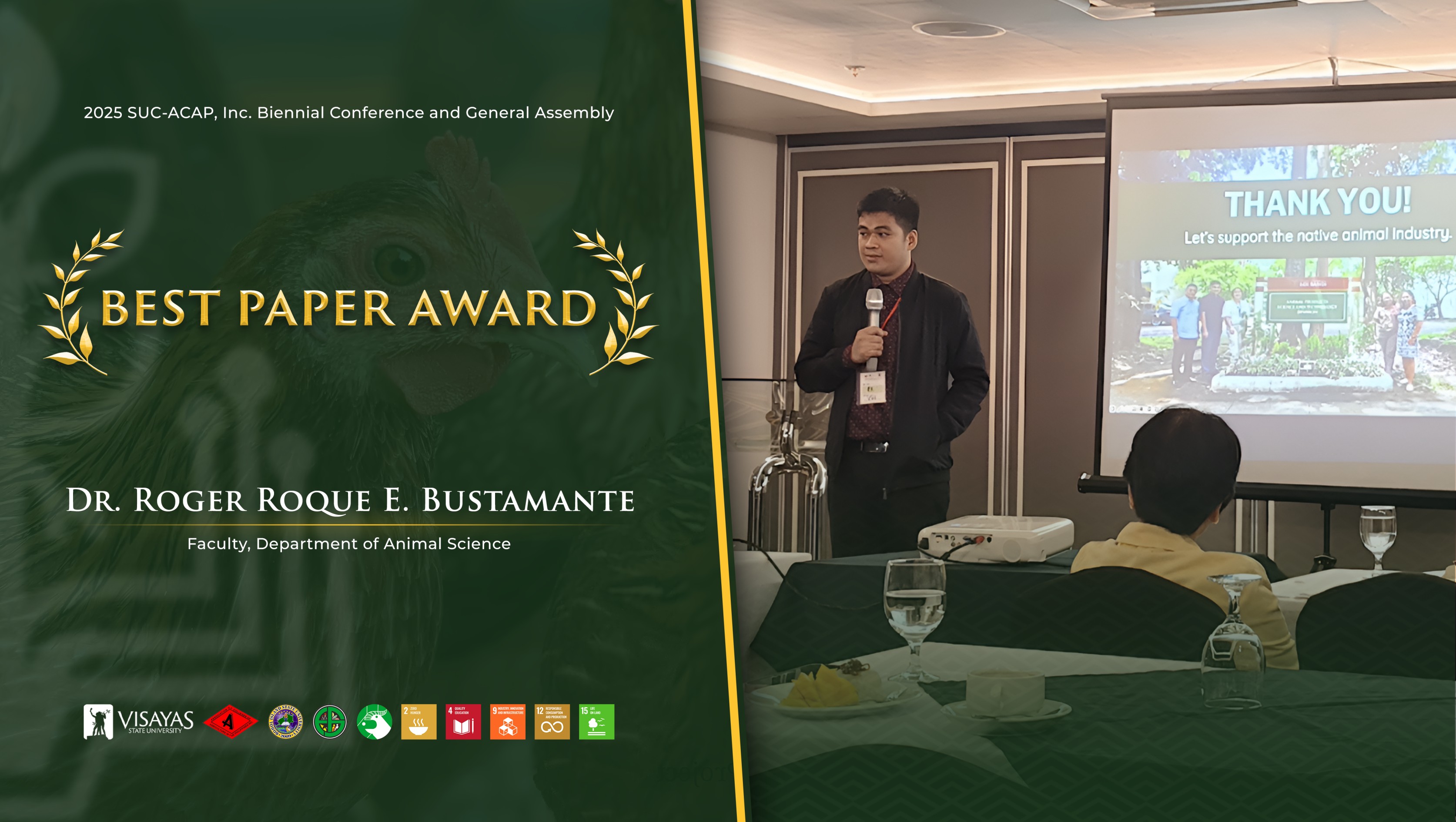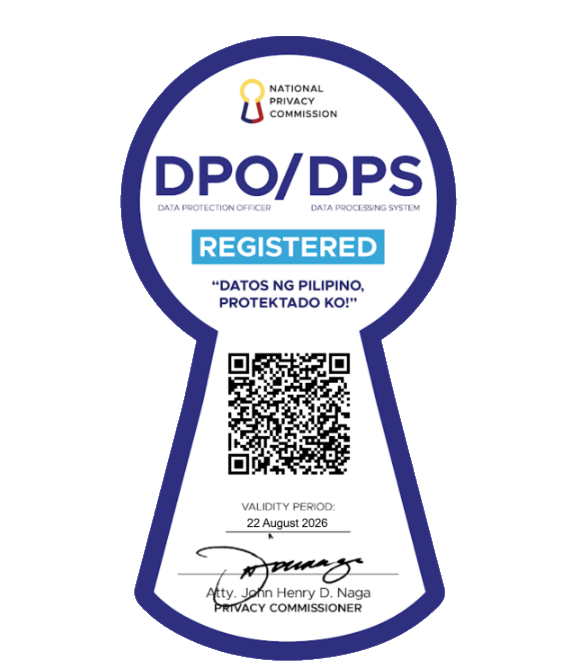#ProudViscan Animal Science faculty wins Best Paper Award at 2025 SUC-ACAP Biennial Conference in Bohol
- Details
- Written by Claudette Meli Hoff E. Garduce
-
Published: 19 September 2025

Dr. Roger Roque E. Bustamante of the Department of Animal Science, Visayas State University (VSU), bagged the Best Paper Award at the 2025 SUC-ACAP, Inc. Biennial Conference and General Assembly for his research on processing strategies to improve the tenderness and value-added uses of Darag Philippine native chicken.
The conference, held from August 27–29, 2025 at the Metro Center Hotel in Tagbilaran City, Bohol, carried the theme “Future-Proofing Agriculture Education: Fostering Smart, Sustainable, and Inclusive Agriculture.”
Agricultural educators, researchers, and experts nationwide presented studies designed to address pressing issues.
The State Universities and Colleges–Association of Colleges of Agriculture in the Philippines (SUC-ACAP) Inc. serves as a network of public higher education institutions focused on advancing agricultural education, research, and development in partnership with government agencies.
This year, VSU President Dr. Prose Ivy G. Yepes was elected president of the association, giving the university a strong national platform to help shape agricultural education in the Philippines.
Research with direct impact on food security
Dr. Bustamante’s paper, “Influence of Age and Sous-Vide Cooking Duration on the Tenderness of Darag Philippine Native Chicken Breast,” won under the sub-theme Food Security and Nutrition.
Co-authored by Dr. Maria Cynthia R. Oliveros, Dr. Veneranda A. Magpantay, Dr. Oliver D. Abanto, and Dr. Katherine Ann C. Israel, the study is part of his dissertation research on the Darag breed, covering carcass traits, meat quality, and processing applications.
The research assessed how slaughter age and sous-vide cooking affect muscle fiber development, color, moisture, cooking loss, yield, and tenderness. Findings suggest that younger Darag chickens are better suited for simple cooking methods, and older birds are more appropriate for further processing.
During the open forum, Dr. Bustamante explained why he focused on native chickens instead of broilers. He noted the scarcity of studies on meat quality characterization for native breeds in the Philippines, as most past research has centered on breeding, nutrition, or production. His work fills this gap, opening opportunities for farmers and processors to expand the marketability of native chicken.
For VSU, this national recognition strengthens its role in agricultural innovation, particularly in research that blends academic inquiry with practical applications in food security.
Dr. Bustamante’s award-winning study directly supports this initiative and adds critical knowledge on how to process and market native chicken products that meet consumer demand for quality and affordability.
As one of the universities in the country to launch a comprehensive native chicken program, VSU continues to show how higher education institutions can lead in developing science-based strategies for sustainable food systems.
This article is aligned with the Sustainable Development Goal (SDG) 2: Zero Hunger; SDG 4: Quality Education; SDG 9: Industry, Innovation, and Infrastructure; SDG 12: Responsible Consumption and Production, and; SDG 15: Life on Land.


